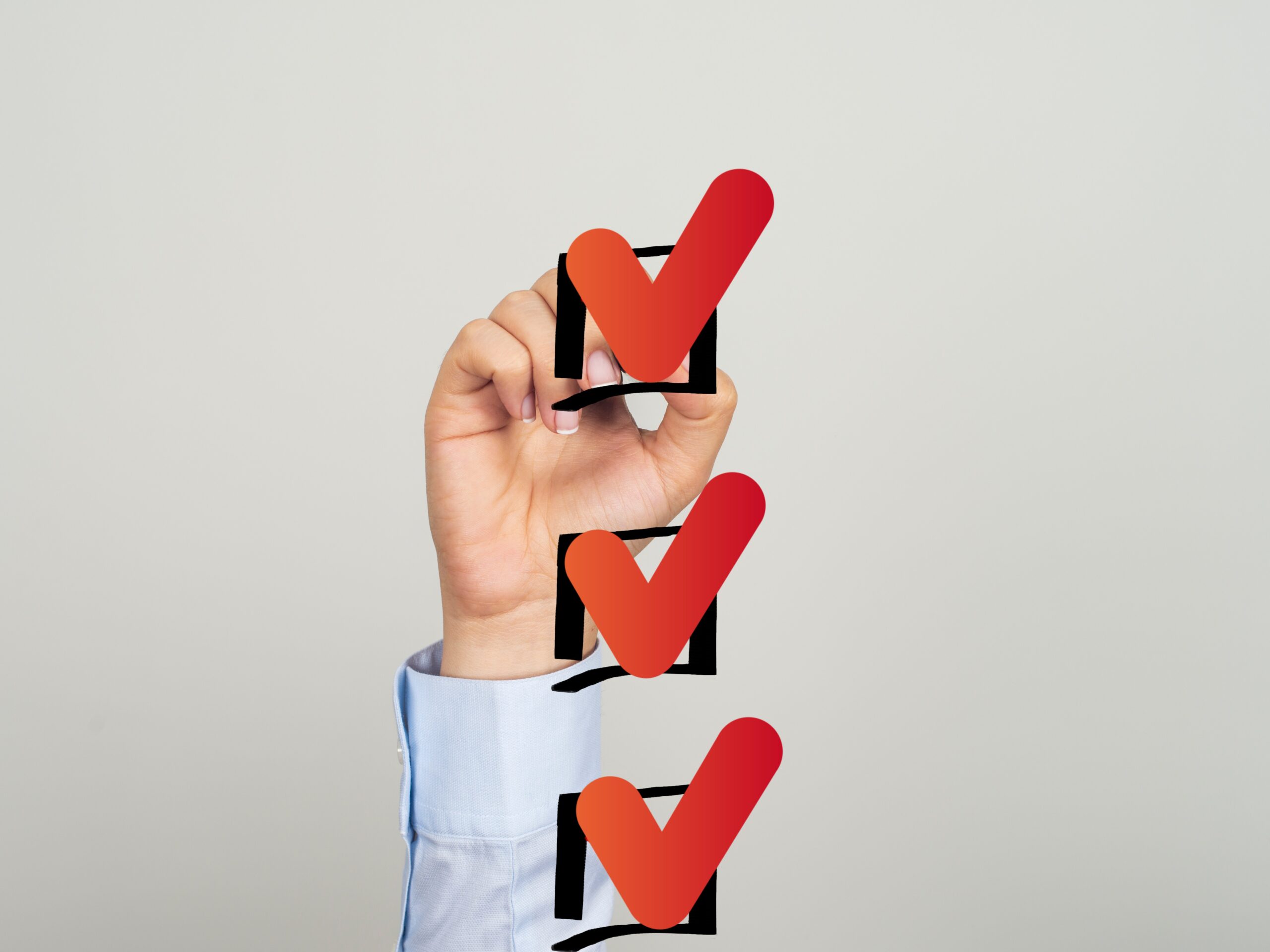Checklist for choosing a future-proof EDI partner
Whether you are currently undergoing a system change or considering external support for the first time, anyone looking for a suitable EDI provider quickly faces the key question:
How can I tell if a provider truly meets my requirements – today and in the future?
EDI is not just a technical matter. It is about process understanding, integration speed, long-term availability and security – and how well a provider understands your business.
To help you ask targeted questions when speaking with potential EDI partners, we have compiled the most important criteria and distinguishing features in a practical checklist.
1. How is the implementation carried out in practice?
When it comes to switching or implementing an EDI system, time is often a critical factor. Ongoing business processes must continue to run smoothly, and partners should not be “slowed down.” That is why a clear assessment of the project duration is essential. Ask about implementation time, project structure, partner onboarding, and response times during ongoing operations.
Be even more specific: Clarify how a typical project is carried out – from the initial analysis through mapping to go-live – and what you can expect in terms of partner onboarding. It is important to know whether the provider handles the technical connection themselves, how many partners can realistically be integrated per week, and whether there are structured processes for testing phases. The post-go-live period should also be addressed: How quickly can technical issues be resolved, how are changes to the setup managed, and what does this mean for your ongoing operations? A good provider will give clear examples.
2. Who takes responsibility?
A frequently underestimated but crucial aspect is the question of active responsibility. Clarify early on: Who is responsible for monitoring the interfaces? Who proactively identifies problems and initiates their resolution? Who communicates with you or your business partner in case of doubt – and in what form? It is also important to know how structured the EDI provider is in handling outages or changes, whether there are dedicated contacts, and whether responsibilities are clearly defined internally.
3. Is your solution future-proof?
A modern EDI system must be both adaptable and stable. Make sure your provider offers scalable architectures, service options, and modern API integrations. Particular attention should also be paid to information security. Ask specifically about certifications such as ISO 27001 or the implementation of an ISMS (Information Security Management System). Legal requirements, such as the ubiquitous NIS2 directive or industry-specific compliance standards, should also be part of the security concept. EDI providers that actively implement these standards ensure the long-term protection of your data flows.
4. What service levels do you offer?
EDI is a business-critical system. If it fails, the entire flow of goods or information often comes to a halt. That’s why
- 24/7-Monitoring
- guaranteed response times
- maximum availability
- fault tolerance
Only with clear SLAs is ongoing EDI operation secured.
5. Do you support all common formats and standards?
Your company is growing, and new partners bring new formats.
A modern EDI partner should be able to handle standards such as EDIFACT, VDA, ANSI X12, XML, ZUGFeRD, XRechnung, and APIs effortlessly, as well as have the capability to quickly integrate additional formats when needed. The provider should cover your current requirements and also accommodate the future needs of your partners and markets.
6. How (transparent) is the pricing model?
Setup costs, monthly fees, costs per partner, format changes, or transactions:
A professional EDI service provider communicates these factors openly. Transparency means not only honesty but also
7. One of the most important questions: Do you understand my business?
An experienced provider brings not only technical expertise but also industry knowledge. Without this understanding, many opportunities remain untapped. Pay attention to experience in your sector, whether it’s retail, manufacturing, logistics, or FMCG. It is particularly important that the provider understands your process logic: How are orders, delivery notifications, or invoicing processes handled in your environment? Only a provider who understands your business can optimally integrate EDI into your processes. Ask for reference projects and best practices to benefit from proven solutions and faster implementation.
Conclusion: Making the Right Choice
With these 7 questions, you are well prepared to critically evaluate your future EDI partner. A provider who understands your requirements and can grow with you not only saves time and money but also secures your digital competitiveness in the long term.
Download the checklist for free now, so you’ll have the right questions ready for your next conversation with a potential provider: Checklist – 7 Questions You Should Ask Every EDI Provider
We are always happy to assist you – whether it’s for your next EDI decision, a specific project inquiry, or simply to exchange experiences.
